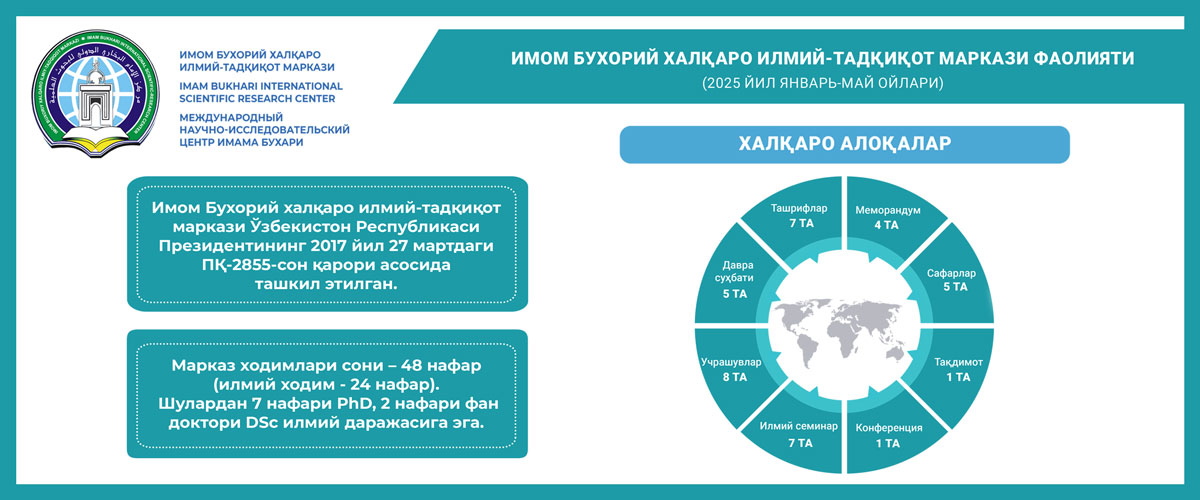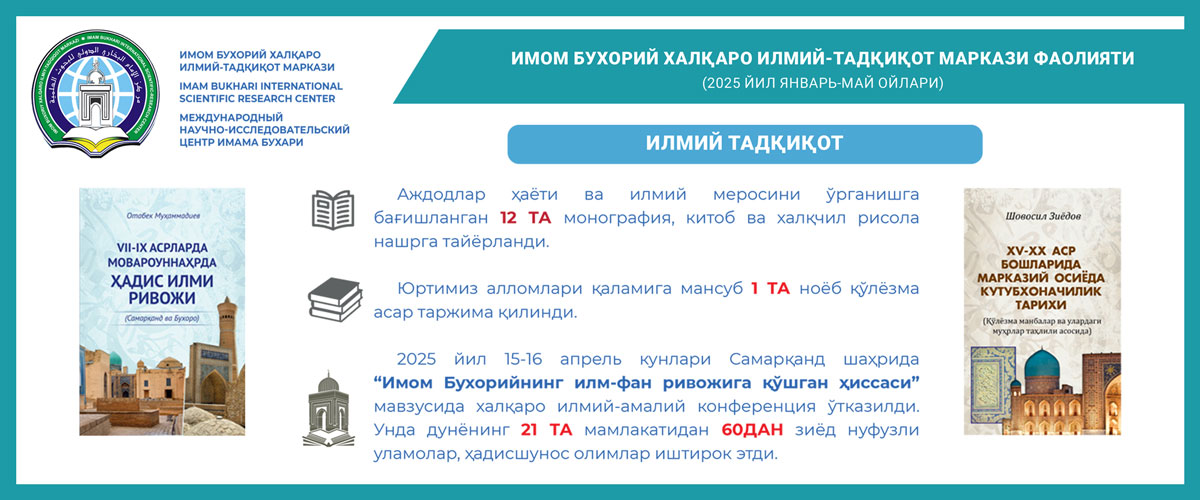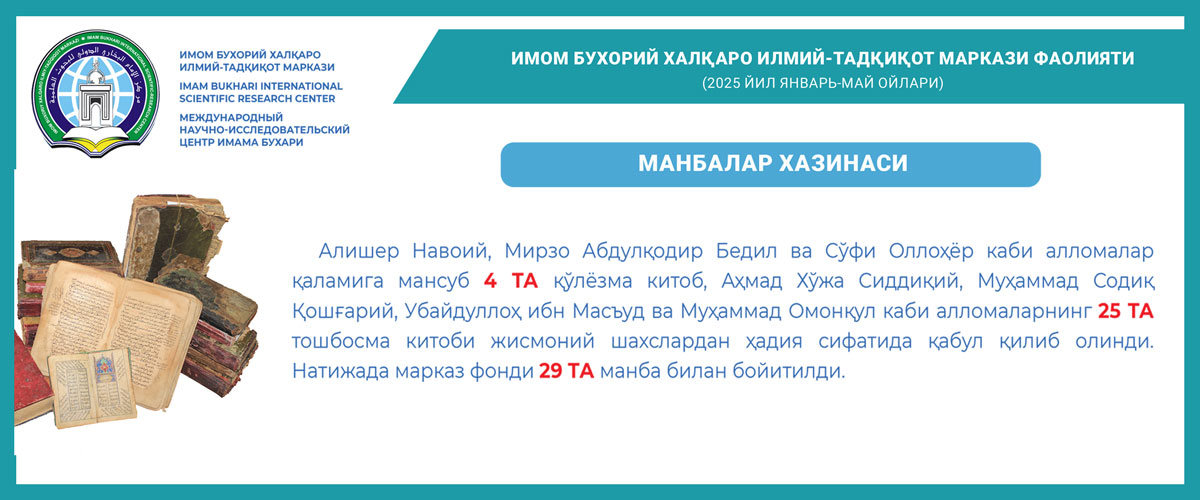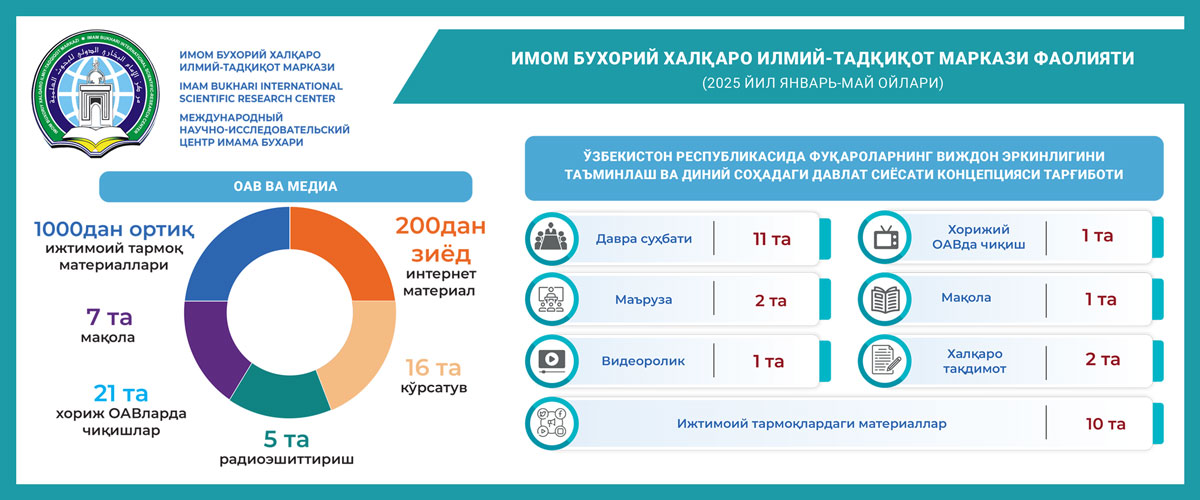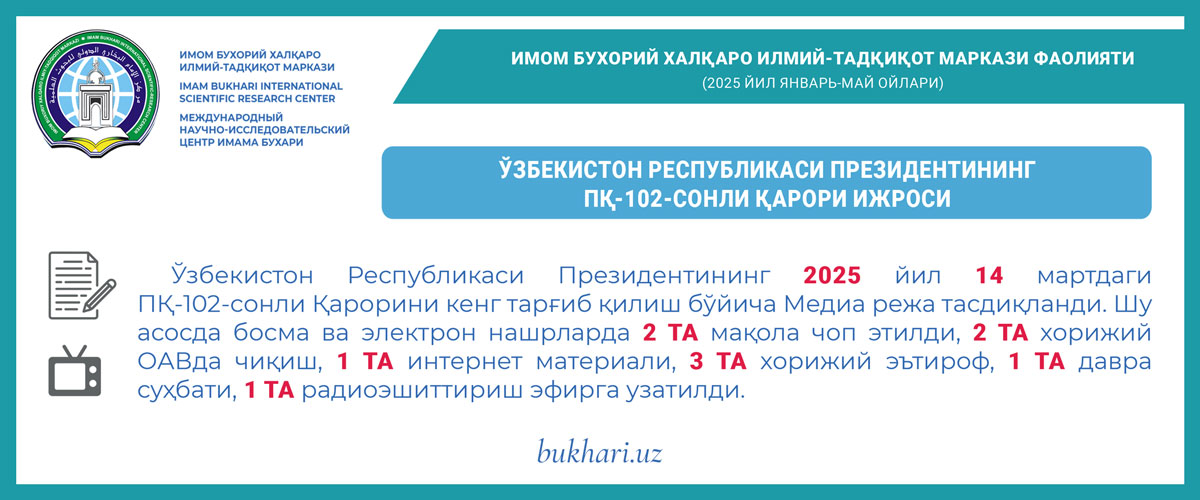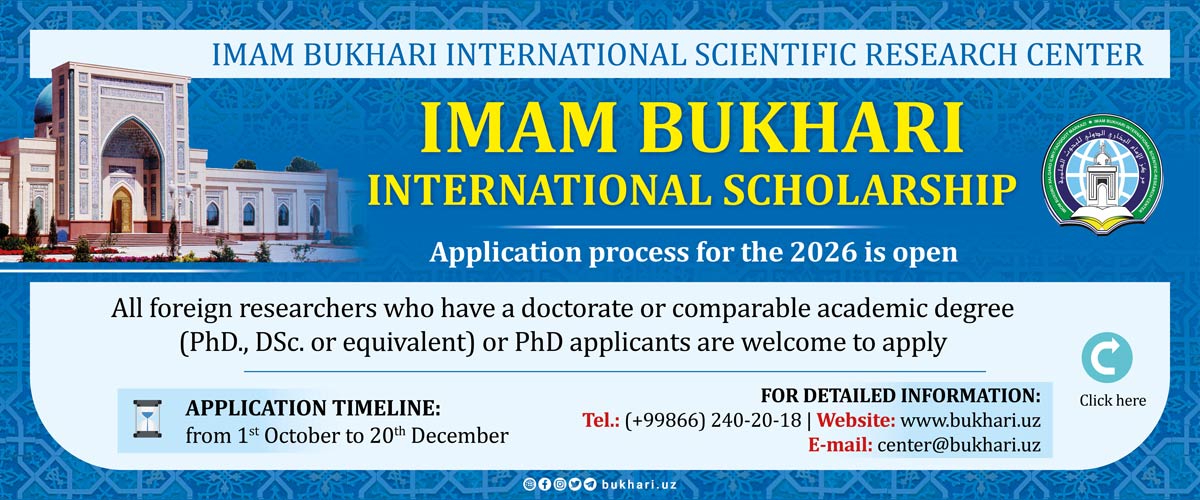Bahauddin Naqshband (1318-1389), who lived two centuries later than Sheikh Abdulkhaliq Ghijduvani created his own theory and founded the Naqshbandiya order. As the main principles of his theory, he chose the eight rules offered by his masters Khoja Yusuf al-Hamadani and Abdulkhaliq Ghijduvani. He added to them three more rules and in total, there were eleven rules in his theory. The three rules added by Bahauddin Naqshband are as follows:
- “vuqufi zamani” (to be aware of the events taking place around you, in other words a Muslim must keep in mind his own good and bad deeds);
- “vuqufi adadi” (one should keep in mind the number of pronounced prayers in one breath in the process of “zikr”);
- “vuqufi qalbi”. This rule is understood in two ways: one is that the prayer should always keep in mind the name of Allah and the second one is that the soul of the prayer as was mentioned by Bahauddin Naqshband should always be with Allah.
Thus, we can conclude that the main principles of the Khajagan (Naqshbandiya) order were founded by Khoja Yusuf al-Hamadani, Abdukhaliq Ghijduvani and Bahauddin Naqshband.
A well-known representative of Sufism Abdulkhaliq Ghijduvani left us a great amount of scientific and spiritual heritage. His legacy was enjoyed by hundreds of his students and followers. He also left a number of his scientific works. Among them,we can mention the following:
1) “Vasiyatname”. It is also known as “Adabi tariqat” (The moral
principles of teachings);
2) “Risalai Sahibiya” (Booklet of friendship);
3) “Az guftari Khoja Abdulkhaliq Ghijduvani” (Samples of
sayings by Abdulkhaliq Ghijduvani).
Some copies of these manuscripts are preserved in the scientific library of the Institute of Oriental Studies named after Abu Rayhan Beruni in Tashkent. The main essence of the theory of the Naqshbandiya teachings is related to the main rules of behaviour of a Muslim,principles of morality,as well as spiritual and psychological maturity of man. This teaching is intended to the purity of moral and behaviour of the members of the society. In the process of creating his theory Abdulkhaliq Ghijduvani, who had an honourable title “Khojai Jahan”, tried to account on the requirements of the Holy Qur’an which was considered to be the main law of “ahli sunnah va-l-jamaa” (the society of the representatives of the Sunnah order) and the requirements followed by Prophet Muhammad (saas).
In his creative activity, Abdulkhaliq Ghijduvani fought for the purity of Islam and hated any type of abusing the rules of Islam and breach of trust of pure Muslims. According to the information provided by some sources, at the time of his fight there were no abusers of the principles of Islam in Maveraunnahr. He used to call ordinary people to enlightenment, science and knowledge, especially he was deeply devoted to the science of Hadiths and Islamic law. He tried to disseminate the principles of pure life,living on one’s own labour, smartness and to avoid dishonesty and differentiate good and evil as well as unity of word and deed. His teachings were devoted to the appreciation of good deeds of man, patriotism, diligence and industry as well as permanent struggle for science, education, enlightenment and knowledge. The founder of the motto “Dast ba koru, dil ba yo’r” (Your hands should be busy with work and your soul with the name of Allah) proposed by the Khajagan order was also Abdulkhaliq Ghijduvani.
One of the positive and important peculiarities of the teachings, legacy and practical activity of the great Sufi Abdulkhaliq Ghijduvani lies in the fact that his works promote the main principles of both religion and secular sciences. His faithfulness and courage is worth appreciation. Perhaps, due to these peculiarities, his legacy and ideas promoted in his works have been living for several centuries in the social and spiritual life of not only in Central Asian countries but also in the countries of the Middle and Near East.
 Imom Buxoriy xalqaro ilmiy-tadqiqot markazi bukhari.uz
Imom Buxoriy xalqaro ilmiy-tadqiqot markazi bukhari.uz
